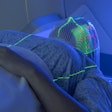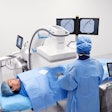
LONDON (Reuters), Oct 27 - An experimental drug that is effective in reducing the size and number of precancerous growths in mice could help treat or prevent bowel cancer in humans, scientists said on Friday.
Most cases of the cancer develop from polyps, extra tissue that grows on the wall of the bowel. Not all polyps are dangerous but about 5% to 10% develop into cancer.
Scientists at the British charity Cancer Research UK found that AZD2171, an experimental drug made by AstraZeneca, stopped polyps in mice from progressing to cancer by blocking their blood supply.
"This initial work in mice may one day translate to man and could provide the basis for a pill to treat polyps and so prevent tumors," said Dr. Robert Goodlad, who headed the research team.
Colon (bowel) cancer is one of the leading cancer killers in developed countries. Nearly 950,000 cases are diagnosed worldwide each year. The disease kills about 490,000 people annually.
AZD2171 halts angiogenesis (the growth of blood vessels), cutting off the supply of blood needed by tumour cells to thrive. It interferes with a molecule called vascular endothelial growth factor (VEGF), which tells cells to grow new blood vessels.
Several anti-VEGF drugs have been developed by various companies, including Avastin from Roche and Genentech, which is already on the market.
"When given to the younger mice, the drug made the polyps smaller and fewer. When the mice were quite a bit older it reduced the diameter of the polyps," said Goodlad, who reported the findings in the journal Carcinogenesis.
"There is quite a lot of evidence showing inhibitors of angiogenesis can be effective in a clinical setting but it is still early days," he told Reuters. In early clinical trials in patients with advanced bowel cancer, the drug was well tolerated and did not produce any serious side effects.
"It definitely has therapeutic potential," Goodlad said, adding that large scale studies now have to be done to test its effectiveness in humans.
By Patricia Reaney
Last Updated: 2006-10-27 12:10:13 -0400 (Reuters Health)
Related Reading
Aldose reductase blockade curbs colon cancer in mice, October 20, 2006
Copyright © 2006 Reuters Limited. All rights reserved. Republication or redistribution of Reuters content, including by framing or similar means, is expressly prohibited without the prior written consent of Reuters. Reuters shall not be liable for any errors or delays in the content, or for any actions taken in reliance thereon. Reuters and the Reuters sphere logo are registered trademarks and trademarks of the Reuters group of companies around the world.

















